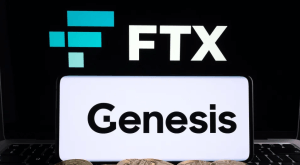Crypto-Philanthropy: How Blockchain Is Transforming the Global Donation Industry
With over $200 million in crypto donated to charities worldwide last year, we look at why digital assets are becoming a more acceptable form of payment to charities and the future of digital assets in the philanthropy space.

Charities are increasingly accepting crypto as a means of donation, allowing well-wishers to donate their Bitcoin, Ethereum, BNB, XRP, and even NFTs to make a change in the world. The Giving Block, one of the largest crypto philanthropies, reported an all-time high of $125 million in crypto donations in 2022, with over 1,000 nonprofits accepting crypto through the firm – averaging at least $25,000 to each nonprofit.
In addition, Binance Charity recently surveyed over 1,100 people on the rising popularity of crypto in the philanthropic world, showing a growing interest in people donating digital assets over traditional channels. While 43% of the respondents of people still prefer traditional methods such as cash, cheques and bank, 33% of the respondents prefer donating digital assets.
The stats are clear – there is increasing interest in crypto-philanthropies, and it looks set to grow even further in the coming years. The Global 2023 report from The Giving Block forecasts the crypto donations market could grow to $10 billion in the next decade, showing the massive potential crypto holds in making a change in the environment, humanitarian causes, ending hunger and poverty, etc.
Unlike the bearish sentiment in the overall crypto market, the crypto donations boom only seems to grow more robust, and for good reasons. Tied to blockchain technology, crypto philanthropy does away with the fraud and wastefulness in big charities and the corruption and unaccountability in small charities, which helps streamline nonprofits’ budgets and ensure every dollar is spent in the intended way.
A Growing Presence of Crypto in Global Philanthropy
The advent of blockchain technology brought along many valuable traits that were previously lacking in Web 2 or traditional finance systems. This gives unfaithful charities an opportunity to overspend or mismanage funds, with donors not having accountability or transparency on how donated funds were used. Crucially, most charities that don’t bring in more than $25,000 aren’t even required to file an annual return in the U.S. and other nations around the world.
Blockchain technology can be implemented in charity organizations to benefit from:
1. Transparency and Accountability
Traditional channels, such as cash, cheques, remittances, etc., are not as transparent or accountable as donors would like them to be. An analysis by the World Bank’s Sanctions Evaluation and Suspension Office from 2012 to 2017 showed that nearly $245 million in aid was being lost annually in Africa through corruption.
Adopting blockchain technology solves this issue, given all crypto transactions (donations and withdrawals) are recorded on the blockchain. The public nature of blockchains keeps nonprofits transparent and accountable, as any donor can check the amounts coming in and going out of the nonprofit’s address. While not foolproof, blockchain provides a more open donation channel than traditional channels.
2. Global Access to Philanthropies
While transparency and accountability remain two of the primary factors for people selecting crypto donations, the ability for donors to send money anywhere around the world also plays a significant role. For instance, Binance Charity donated over $15 million to different charities and nonprofits worldwide in 2022, impacting over half a million people across 53 countries in the process.
Crypto philanthropy has been picking up ever since the COVID-19 pandemic, where global crypto exchanges, including Binance, Crypto.com, Huobi and others, raised cash for the pandemic’s victims. Notwithstanding, the Ukrainian government raised over $54 million in cryptocurrencies to help in their war with Russia.
3. Lower Fees and Taxes
One of the biggest reasons why charities are increasingly selecting crypto as their preferred mode of donations is the tax breaks and credits that donors get. In many countries, whenever a donor donates using crypto, they are eligible to get a charitable contribution deduction when filing their tax returns at the total fair market value of the cryptocurrency at the time of the donation. Nonetheless, this is not recognized in every country, as the value of crypto is calculated differently in every jurisdiction.
Additionally, crypto reduces the transaction fees to a minimum, meaning more prominent donors can send vast amounts of money to charities for a few dollars. This makes it more affordable for big donations, which in the traditional financial systems could have cost a lot more transaction fees.
The opposer’s view: Creating a more destructive society
Despite the exponential growth of crypto donations and the benefits of blockchain over traditional charities, there’s still resistance to adopting digital assets within some charities. The opposers argue that cryptocurrencies could serve as a predatory scheme whereby newer investors’ money enriches earlier, wealthier individuals. This goes against most charities’ ethos and keeps most of them away from crypto donations.
Additionally, the antagonists point to the damages that cryptocurrencies (precisely proof of work chains) inflict on the environment. The reliance on vast amounts of electricity to verify transactions could, in turn, contribute to adverse climate conditions and global warming. Accepting crypto donations, from their perspective, could mean the charities are endorsing a more destructive and unjust financial system – probably more than the currently existing ones.









